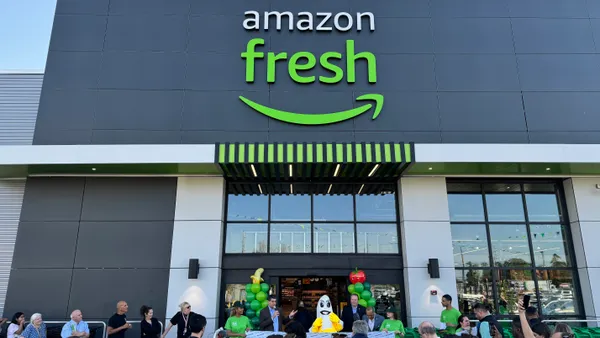Dive Brief:
- Microsoft is granting employees up to 12 weeks of paid leave to deal with extended school closures caused by the COVID-19 pandemic, a spokesperson confirmed to HR Dive in an email.
- Implemented last week, the benefit is available to all of Microsoft's global employees, both hourly and salaried.
- The leave may be taken on a continuous, reduced or intermittent basis, the spokesperson said: "For example, it could be used to take leave for 1-2 days per week while remotely working the rest."
Dive Insight:
The offering represents the latest emergency response implemented by Microsoft since the pandemic's onset. Last month, the tech giant said it would pay vendor hourly service workers at certain corporate offices, including cafe staffers, shuttle bus drivers and on-site tech workers, despite reduced need as employees at those offices work remotely.
The announcement bears some similarities to the paid-leave provisions of the Families First Coronavirus Response Act (FFCRA), which expanded the Family and Medical Leave Act to provide up to 12-weeks of emergency, job-protected leave, with some limitations. But that law applies to private-sector employers only if they have fewer than 500 employees, and employers in that group may qualify for exemption from some of the law's provisions.
Large employers, particularly those with front-facing workers, have announced similar emergency leave benefits. Walmart announced in March expanded leave options for those unable to work or are uncomfortable at work in light of the pandemic, and said it would waive its attendance policy through the end of April. But the retailer said workers would need to use paid time off options to be paid for such leave.
The Microsoft announcement comes amid a nationwide discussion about the pandemic's impact on education in the U.S., and the disparities therein. Those include access to quality homeschooling and technology, which are not available to all families, according to a Harvard University interview with professor Paul Reville.
Most employees (60%) in a recent Harris Poll survey for Glassdoor said they are confident that they can do their job efficiently while working from home during the pandemic. But only 16% of respondents to the survey said their employers offered additional paid or unpaid sick leave, while 27% of respondents who had children under the age of 18 said they would be concerned about managing children while working from home. Even in the months before the pandemic, some surveys pointed to the negative effects on turnover and job performance caused by lack of child care benefits.












